How and why do zero-car households seek car access? We used a national online survey of 830 American adults and interviews with twenty-nine low- and moderate-income travelers about their car access behaviors to answer this question.
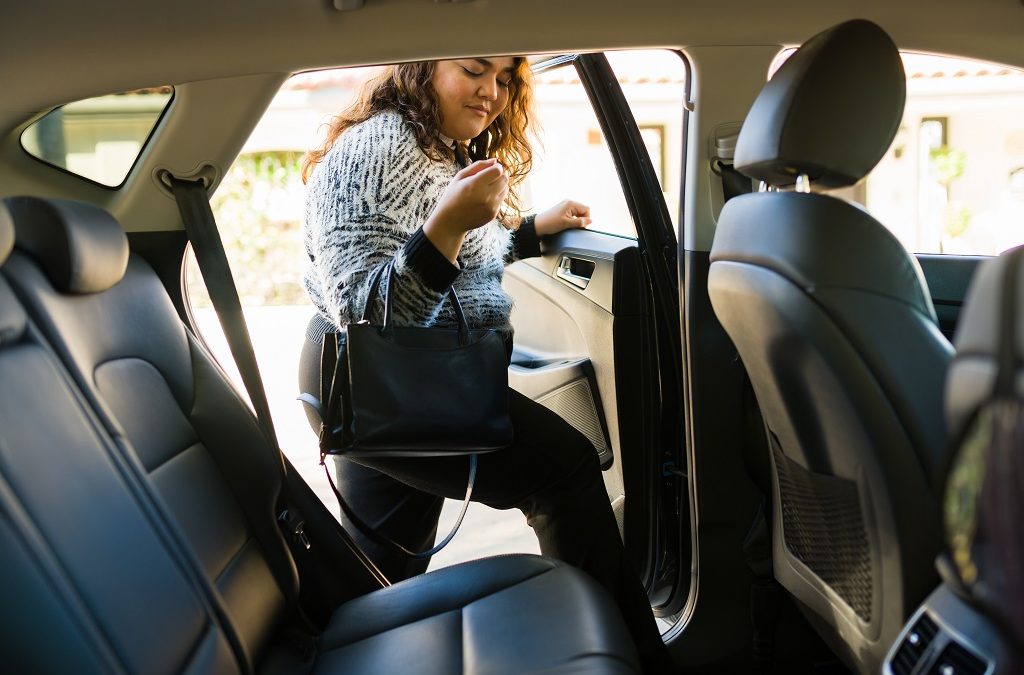

How and why do zero-car households seek car access? We used a national online survey of 830 American adults and interviews with twenty-nine low- and moderate-income travelers about their car access behaviors to answer this question.
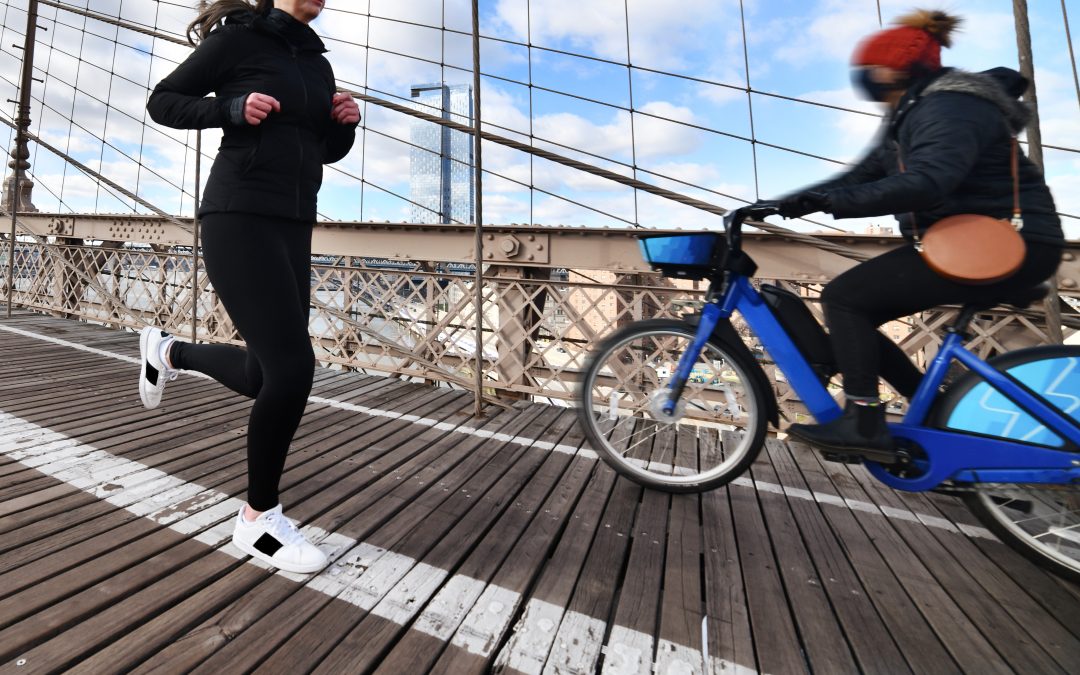
Study investigates the difference between shared electric bicycles (e-bikes) and conventional shared bikes operated by Citi Bike in New York City.
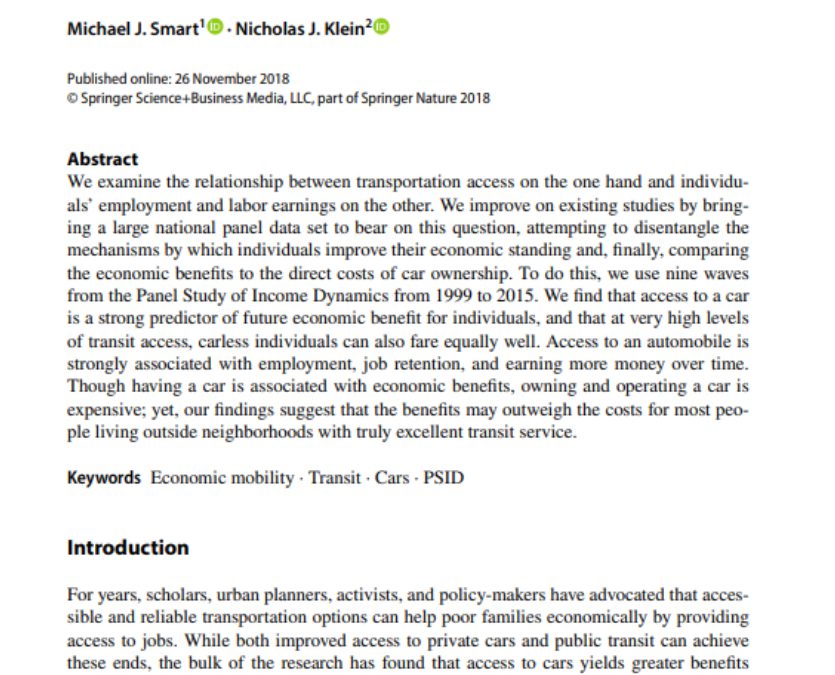
In this article, Professor Smart and Nicholas Klein (Bloustein PhD, 2014) find that having a car helps Americans find jobs, keep those jobs over time, and move up the economic ladder.
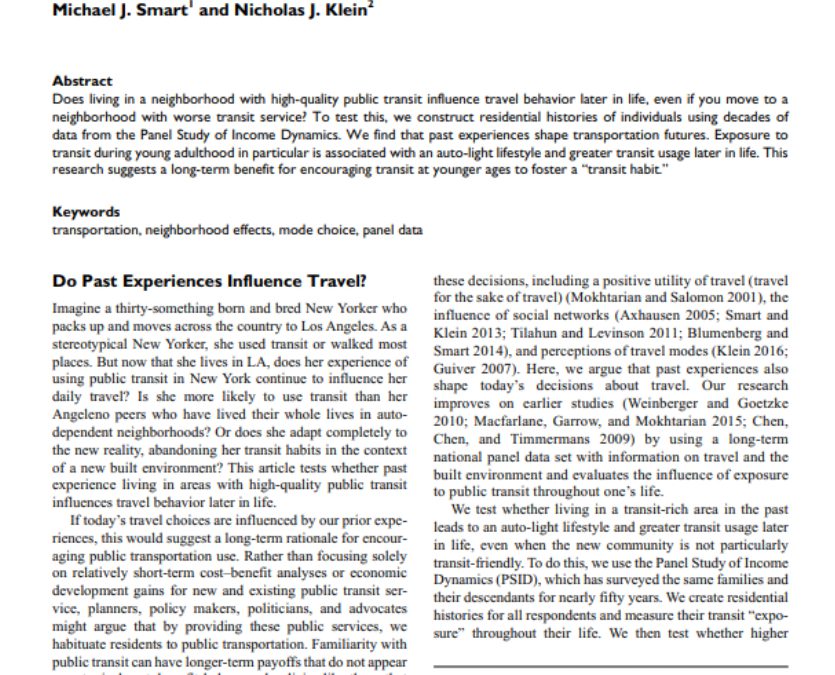
This research suggests a long-term benefit for encouraging transit at younger ages to foster a “transit habit.”
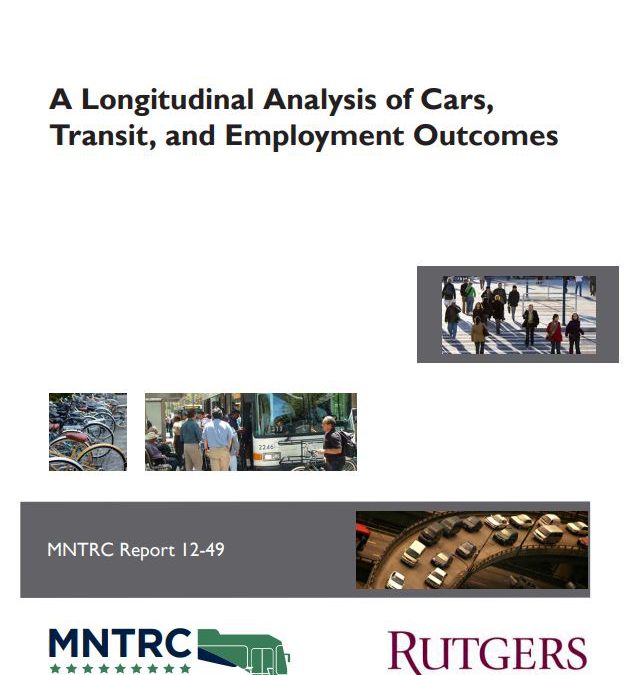
This report improves on existing data by analyzing groups that have variable access to automobiles – poor families, immigrants, and people of color.
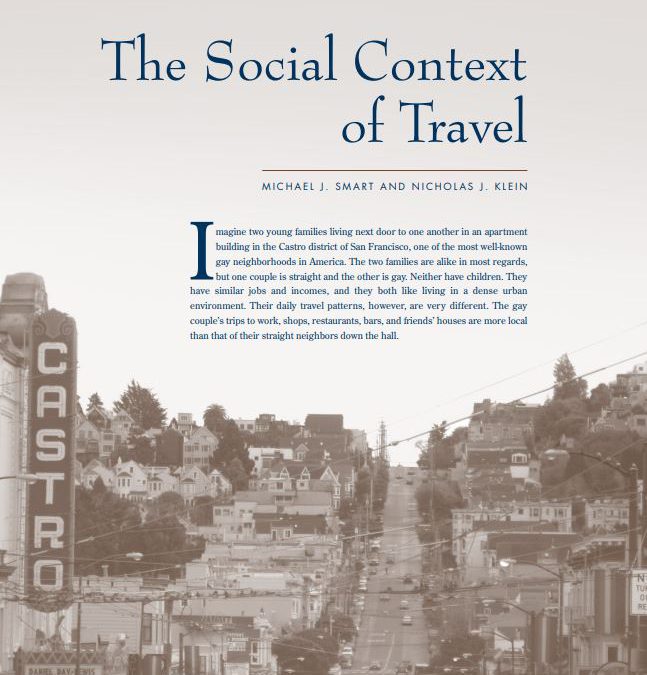
The authors examine how the social context of a neighborhood can influence activity and travel patterns of those living in “neighborhoods of affinity,” where members of a group with strong social ties live and work.
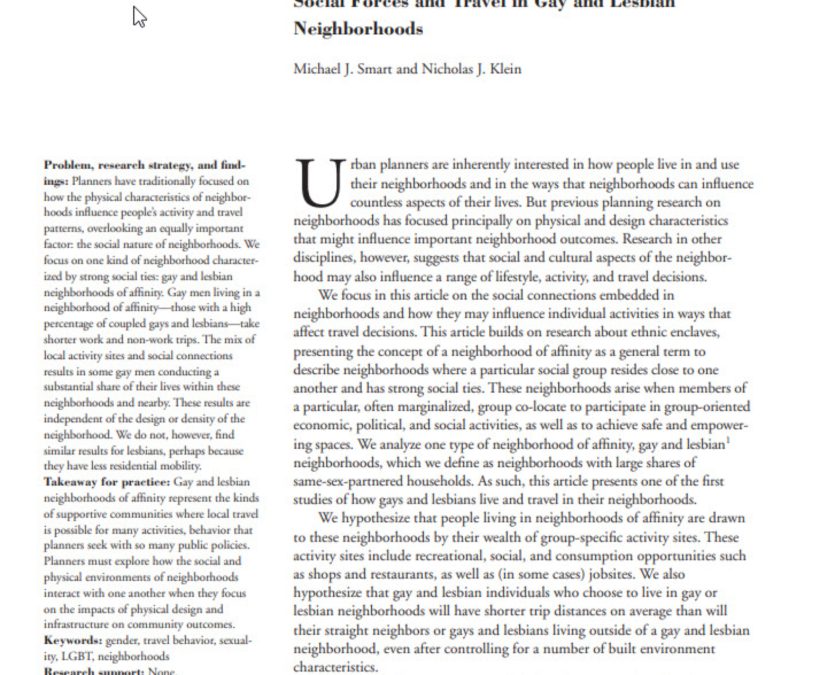
Gay men living in gay neighborhoods travel much shorter distances on average than their straight next-door neighbors do.
Induced travel elasticities associated with new road capacity are typically estimated for roads of higher functional classifications, such as interstate freeways and principal arterials. These are estimated as “own” elasticities, that is an increase in lane kilometers...
There is a growing perception that e-scooters are more dangerous than bicycles and e-bikes, with towns implementing measures to ban their usage. Yet, there is not much evidence from large scale surveys to substantiate this claim. Nearly 14,000 micromobility injuries...
We compare charging station accessibility for different income groups in the San Francisco Bay Area. Using a microsimulation model, we estimate charging station accessibility under varying battery range scenarios, assuming different income groups have vehicles with...
The New Jersey Micromobility Guide serves as a resource for micromobility users across the state, collecting and summarizing the laws and safety best practices that can make riders safer. Micromobility, which includes e-bikes, e-scooters, and other low-speed devices,...